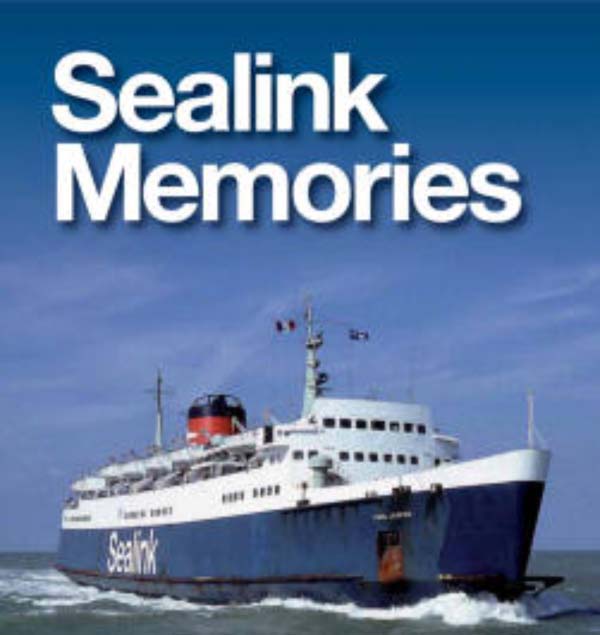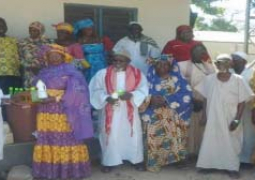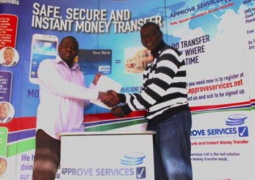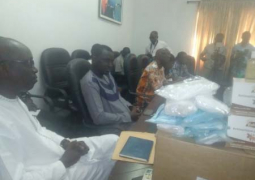
The perennial constraints faced in the movement of goods and people in the West and Central African regions will soon become a thing of the past, when the Maritime Shipping Operation to cover these regions comes on steam in 2014.
This laudable Sealink project, which is almost at the tail end for implementation, will link all the 15 West African countries and those in Central Africa to facilitate trade and the movement of goods and people, thereby help to grow the economies of these regions.
Behind this inspiring initiative are the Federation of West African Chambers of Commerce and Industry (FEWACCI), which comprises all chambers of commerce in West Africa, and two major partners known as NEXIM Bank of Nigeria and Transimex of Cameroun, with the full support of the ECOWAS Commission.
The modus operandi of the initiative is to set up a transnational company to be owned by investors from all member countries of the regions, with its headquarters in one of the ECOWAS member states and representative offices in these countries.
A private limited liability company to be, the Sealink business operation will be initially opened at 10 ports across its member countries. And to get this laudable initiative up and running, a capital of US$70 million will have to be raised to manage the business and purchase the initial vessels needed to ply across the routes of member countries in order to bring respite to the manifold problems faced by economic operators and people of the region in trying to transport goods, and trade among member countries.
While FEWACCI, NEXIM Bank and Transimex are viably promoting the project, they are only serving as a Special Purpose Vehicle (SPV) to generate the necessary resources for the project to kick-start in 2014.
After raising the US$70 million through the sale of shares to investors in member countries, the SPV will be dissolved and the business wholly owned by the investors, will put in place a board of directors and a managerial team to run the affairs of the business.
The Sealink project is a unique investment opportunity that has US$70 million worth of shares to be sold across Africa. Its potential is so huge that no-one, especially investors, should afford to be left out of the investment and other benefits inherent in this initiative.
The sale of shares is going to be done by using countries’ GDP as a ratio to equitably allocate shares to each ECOWAS member country.
Shares could be bought in lots of 20,000, equivalent to US$14,000. This or more can be bought by a group of people in The Gambia through the national SPV to be set up under the auspices of the GCCI.
Everyone is encouraged to invest in this project since people with smaller amounts will be given an opportunity to acquire shares through a mechanism that will be worked out between the promoters and the Chambers of Commerce in each member state.
Vision and Mission
The vision for this project is to foster inter-regional maritime passenger and freight services as a catalyst to trade development in and between the sub-regions.
It is therefore out to complement and improve existing transportation (road and airline) services by providing additional capacity and the alternative of ocean transport routes.
While Africa has the lowest intra-continental trade in the world, West Africa, which formed the Economic Community of West African States on 28 May 1975 to promote economic integration through free movement of goods and people, has been suffering from the severe ailment of sub-regional trade deficiency more than every other region of the continent.
Trade across member countries has been seriously impeded due to lack of cooperation in promoting free movement of people and goods, which is largely responsible for the economic backwardness and slow development of the region.
Land and air routes have not really helped either as traders and people find it extremely difficult to move and trade across the region due to delay and excessive logistical costs encountered by people through the mushrooms of checkpoints and high freight costs they have to grapple with when they venture in regional trade activities.
But with the Sealink project, this inimical situation will be a thing of the past, as countries in the region can grow economically by trading among each other.
Nations would also grow in capital through expanded investment opportunities as well as develop through the increased growth of the middle class level of people, who would be making a lot of income.
The project will open up lots of opportunities because of services the operation will demand.
There will be new entrants and new companies that will help the economy to grow at every level and every sector and the nation ultimately would benefit from the activities.
Sub-Saharan Africa needs to have her own vessels carrying her own raw materials, her own finished products and her own people; this is important for the region to effectively compete globally.
All interested and potential investors can contact the GCCI for more information on the project.
Read Other Articles In Article (Archive)




